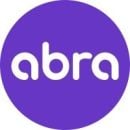In the finance world, blockchain began making its mark with the rise of cryptocurrency, but it has since branched out to create a numerous global payment systems with the same technology — known as blockchain payments.
What Are Blockchain Payments?
Blockchain payments, or blockchain payment systems, involve the processing of payment through the help of blockchain technology. With blockchain, payments are set to be low-cost, secure and processed quickly, overall facilitating money transfer regardless of the distance between the sender and receiver.
Plus, blockchain payments aren’t only restricted to cryptocurrency transactions, meaning the technology can support payments from multiple currencies like U.S. dollars, Canadian dollars and more.
Blockchain Payment Processing
Why Use Blockchain Payments?
For many, blockchain has become a preferable way to handle money, largely due to its efficiency. The core idea of using distributed ledger technology for finance is to forego centralized institutions, like banks, allowing payment through a blockchain to be as easy as clicking “send.” No money transfer waiting periods or unnecessary third-party processing fees. Blockchain-based cryptocurrencies can be transferred — and recorded for auditing purposes — instantaneously across the world, increasing liquidity and operation speed in the markets.
Additionally, blockchain’s smart contract system can halt payments when agreed terms are violated, while its use of cryptocurrencies can alleviate the regulatory red tape that often ensnares international payment processing. Hurdles like day-long waiting periods and high fees for cross-border transactions become alleviated with many crypto payment systems. American Express even believes blockchain can solve these problems, and “will support real-time domestic and cross-border payments at lower costs versus traditional services.”
Take a look at these companies using blockchain payment solutions to revolutionize the way we pay and transfer money.
11 Companies Using Blockchain Payments
Location: New York, New York
JPMorgan Chase’s payment processing arm launched its blockchain group Onyx in 2020 with the aim of “transforming the way money, information and assets move around the world.” Onyx uses distributed ledger technology to serve financial institutions and fintech companies, offering blockchain-based solutions for domestic and cross-border payments, securely exchanging payment-related data and tokenization of digital assets.
Location: Fully Remote
One of the most-used blockchain payment platforms, Coinbase allows users to buy, sell and store over 150 cryptocurrencies and convert their earnings into fiat currency. In addition, the platform houses a variety of tools for individuals and businesses to expand their reach into the crypto sphere. Just a few include features for earning interest and rewards on cryptocurrency, creating crypto wallets as well as creating and connecting NFTs.
Location: San Jose, California
PayPal, an online platform for global transactions, supports the transfer of Bitcoin, Bitcoin Cash, Ethereum and Litecoin. U.S. users are able to move their cryptocurrency between PayPal’s platform and external crypto wallets and exchanges, as well as send and transfer their currency to other Paypal users. PayPal also doesn’t charge fees for transferring cryptocurrency onto or within the platform, and allows checkout with crypto at millions of merchant locations.
Location: Boston, Massachusetts
Circle Pay blockchain allows for the safe transfer of money between different individuals, currencies and countries. The Circle Pay function is available in over 30 countries and in U.S. dollars, euros and British pounds. Each money transfer or payment is encrypted on a blockchain to ensure a safe transaction. The Circle Pay app acts as a group messaging app with a payment feature integration, so. you can transfer money cross-border and cross-currency in between sending your friends selfies and memes.
Location: San Francisco, California
Ripple’s blockchain lets users send money and make payments across the globe. More than 175 banks and commercial platforms use the company’s RippleNet platform for cross-border payments. In 2018, Payment provider TransferGo announced it was using Ripple’s RippleNet payment platform to launch a remittance corridor to India. With Ripple’s platform, TransferGo is now able to speed up its global payment processing from days to a few minutes. Recently, Ripple launched an Ethereum Virtual Machine, or EVM, sidechain for testing, with the goal of bringing Ethereum smart contracts to the XRP Ledger. It’s the start of a three-stage process to have a fully deployed EVM sidechain in 2023.
Location: Atlanta, Georgia
With BitPay’s platform, users can store and swap cryptocurrency for personal or business transactions. The service also offers global payment support, an in-app crypto wallet and personal website integration capabilities. One of BitPay’s staple products, a prepaid crypto debit card, even allows the conversion of cryptocurrency into cash to spend on purchases with cashback.
Location: Denver, Colorado
Zcash is a cryptocurrency exchange platform using its own cryptocurrency (Zcash) to help people pay for goods and services. You can use the company’s crypto to buy a house, purchase electronics or even to donate to a nonprofit. Zcash already boasts a wide list of companies that accept its cryptocurrency. Companies accepting the digital currency as payment are in industries like apparel, web services, medical, restaurants/coffee shops and nonprofit.
Location: San Francisco, California
Veem is a blockchain-backed payment platform for small businesses to send and receive money in local currency. The company’s ledger technology secures, tracks and reconciles payments, so small businesses have a transparent history of all incoming and outgoing payments. Veem is able to integrate with accounting software from Intuit, Oracle and Xero to sync records in real time, as well as allows payments to be sent through email in over 100 countries.
Location: San Francisco, California
Gluwa uses blockchain for their borderless financial platform. The company combines a payment function with a digital wallet to help users manage and easily transfer money to people all over the world. Gluwa users can trade the company’s Gluwacoin for fiat currency at a 1:1 fixed rate. The stablecoin acts as a bridge between the crypto and fiat worlds due to its compatibility with real-world currencies.
Location: San Francisco, California
Stellar’s blockchain payment platform fights poverty by connecting people and low-cost financial institutions. The Stellar network features lower remittance costs, mobile banking, real-time settlements (in two to five seconds) and an automatic currency exchange. Consulting giant Deloitte uses Stellar to test out different payment methods for banking clients outside North America.
Location: Mountain View, California
Abra’s peer-to-peer platform lets users transfer digital currencies to other users using blockchain. Abra users can fund their digital wallets with over 50 different fiat currencies or over 80 different cryptocurrencies, including Bitcoin, Litecoin, Zcash, Augur and Stellar. Residents in the Single Euro Payments Area (SEPA), as well as European Union nations, can transfer euros or other national currencies into their digital wallets on Abra.
Location: Purchase, New York
Mastercard aims to make crypto payments, digital currencies and blockchain more accessible for consumers, banks, governments and businesses. Its global presence and scale allow the company to integrate blockchain technology and digital assets into the global economy.













